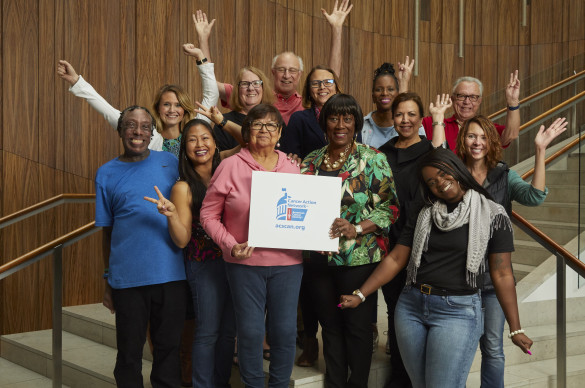Earlier this year, the White House budget proposal suggested a drastic cut of nearly 20 percent to cancer research funding. As a cancer patient, I believe not only that this is wrong, but that we should be increasing funding instead.
I went to my doctor in February 2016 with a mild but persistent cough, and was completely blindsided to get a diagnosis of stage IV lung cancer. I was a seemingly healthy 60-year-old who never smoked, was a lifelong runner, did all the recommended cancer screenings and even (mostly) ate my veggies.
Immediately we had to plan treatment to make the best life I can have for as long as possible. I’m lucky to have such a knowledgeable clinical team that gave me amazing personal commitment and support from the very first day. The important thing is to have many treatments to try.
Fifteen years ago with my diagnosis, there were few options and those were short-term, but now there are more tools available to fight my cancer. Since my diagnosis, I have been taking medication that targets a cancer driver mutation. Now that treatment is losing effectiveness, and there are new options available for me just in time.
In the last two years, immunotherapy-based treatments plus some new combination therapies have proven effective in fighting lung cancer, and techniques such as radiation therapy continue to advance. These new advances give me hope that I can manage my disease for a while longer.
These treatments are giving me precious time and are a direct result of cancer research, and we need more of them. My dream is that 15 years from now, a doctor giving me my same diagnosis would have a very different conversation. She will say there is a pretty good chance for a cure, and failing that we can manage the cancer as a chronic illness for a very long time since we have many therapeutics and techniques to try. The new medicines and ideas to make this happen are already being researched and are tantalizingly close.
I have spent my career as a biomedical research scientist supported by the National Institutes of Health (NIH). The National Cancer Institute and NIH are the major funding source for all types of cancer intervention. Research success in cancer treatment and prevention since the 1980s shows increased survival and decreased incidence for many cancers. We know that more cancer research means more therapeutics and more treatment methods. Yet cancer research funding has not kept up with inflation for many years, and has become so competitive that there is no money for many meritorious approaches.
Last year, this trend was partly remedied through support for the National Cancer Moonshot Initiative and funding allocated by Congress through the 21st Century Cures Act. Both efforts enjoyed widespread, bipartisan backing. Now Congress has the chance to continue the momentum and reject the White House budget proposal to decrease research funding.
With everything at stake, how can we possibly turn things around now? Cancer can strike anyone. Who hasn’t been affected as a patient, caregiver or friend?
As Congress begins to wrap up the 2018 budget process, I urge lawmakers to reject the White House proposal and pass the $2 billion funding increase for the NIH currently under consideration. I am living proof that we should be increasing funding and other efforts to bring new medicines and knowledge more quickly, providing more tools for today’s patients and hope for tomorrow’s patients.
Ted Simon is a lung cancer patient from Cranston. He is a former biomedical research scientist, and advocate with the American Cancer Society Cancer Action Network.
